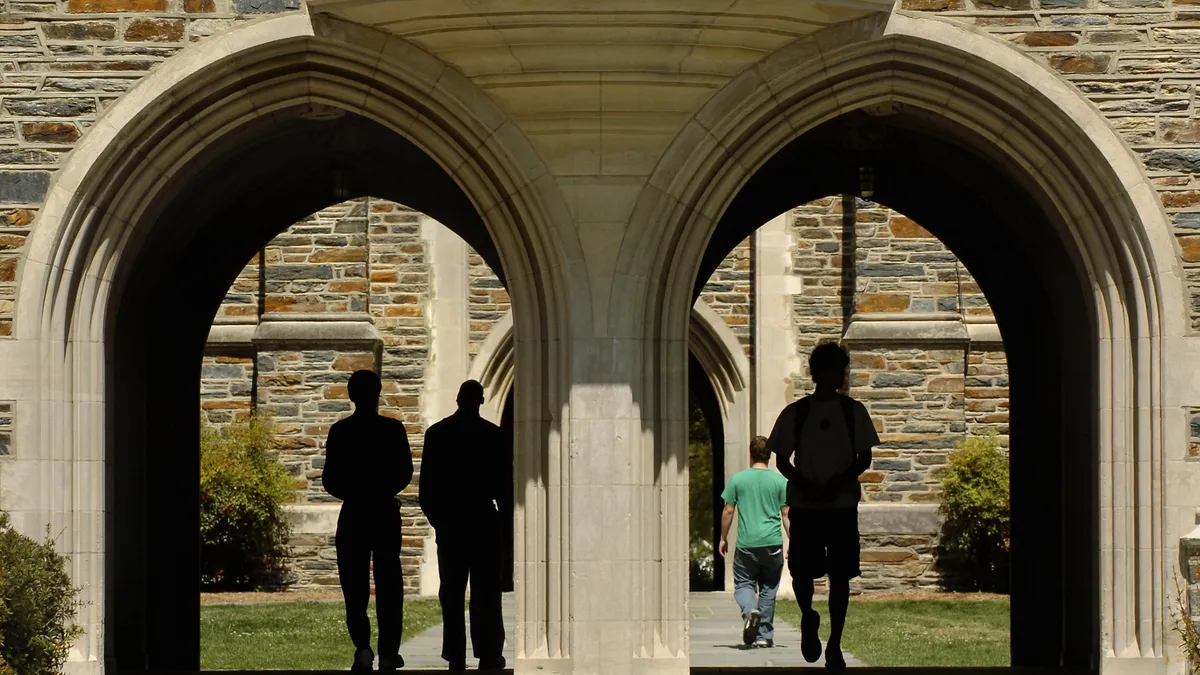Dive Brief:
- Duke University, the prestigious private research institution in North Carolina, announced Sunday it will fire employees who don't provide proof they've been vaccinated against the coronavirus.
- Faculty and staff must show documentation they completed their vaccine regimen by Oct. 1. Those who do not will be placed on administrative leave and will have a week to receive the first shot of the two-dose Moderna or Pfizer vaccines, or the one-shot Johnson & Johnson vaccine.
- Employees who are unvaccinated by the end of the weeklong period will be fired. The university said more than 91% of its 22,000-plus employees are vaccinated.
Dive Insight:
Duke's mandate highlights the growing urgency among colleges to help halt the spread of the coronavirus. The U.S. is averaging more than 150,000 new cases a day, spurred by the highly contagious delta variant.
Hundreds of colleges are requiring the vaccine for the fall, and more have announced mandates since the U.S. Food and Drug Administration granted full approval to the Pfizer-BioNTech vaccine for those aged 16 and older.
Other colleges are requiring their employees to get the shot, but Duke is taking one of the hardest lines on a vaccine directive. The University of Rochester, for instance, is also mandating its employees be vaccinated, but it has only said that failing to comply with its policy "may affect the nature of employment." Washington state Gov. Jay Inslee is also requiring that college employees be vaccinated.
Duke initially gave employees until Sept. 1 to show proof of vaccination. As of Sunday, the university extended that deadline to Oct. 1 but made being vaccinated a condition of employment.
Those who are put on leave and then receive the first shot of the Pfizer or Moderna vaccines must upload proof they received their second doses within six weeks. If they do not, they will be fired. Anyone who is terminated won't be eligible to be rehired at the university.
Employees can seek religious or medical exemptions to the policy, but they will have to submit to a daily symptom check, a weekly coronavirus test and other safety protocols.
"Vaccination is the best way to protect yourself and your loved ones from serious illness related to COVID-19, and it is [the] only way we will bring an end to this pandemic," Duke's provost, and its vice president of administration, said in a memo.
Nearly 350 students and 15 employees at Duke tested positive for the coronavirus over the past week.
The cases prompted the university to change its safety measures, effective Monday, including requiring masks indoors and outdoors in many circumstances and allowing faculty teaching undergraduate courses to move to remote instruction for two weeks.











